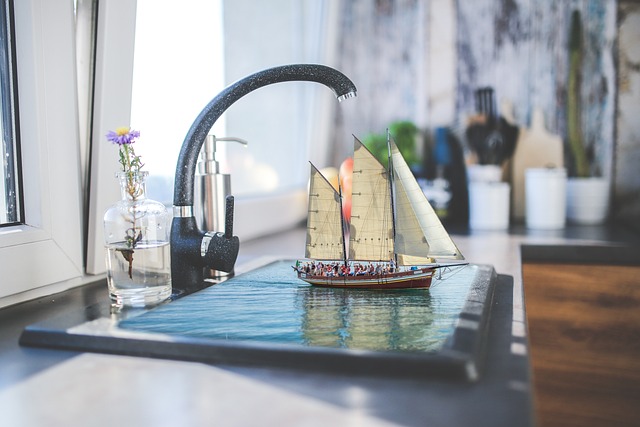Tap water undergoes treatment to make it safe for drinking. However, it may have contaminants that are problematic for medical devices. When cleaning sensitive equipment like CPAP machines, tap water can leave behind mineral deposits or microbes.
These can build up in the machine’s parts and tubing. Bacteria like Legionella could lead to lung infections if introduced into devices. Though tap water is fine for drinking, it poses risks with medical uses. Experts recommend only using sterile or distilled water when maintaining equipment. This higher level of purification ensures safety and preserves warranty coverage. Following guidelines prevents issues.
How Tap Water is Treated and Why it Still Carries Risks?
Municipal tap water goes through a multi-step treatment process to make it safe for drinking and everyday use. Steps like coagulation, sedimentation, filtration, and disinfection remove potentially harmful microbes, minerals, and contaminants. However, tap water is not sterile. Low levels of minerals like calcium, magnesium, and silica can remain. Trace amounts of environmental bacteria may also still be present.
While completely safe for drinking, these remnants can negatively impact medical devices over time. Delicate equipment like CPAP machines and nebulizers are not designed to handle even small particle buildup or microbes left behind in tap water. The purest water possible is required for cleaning and prepping medical devices in order to prevent corrosion, clogging, or bacterial growth that could lead to lung infections.

Hazards of Tap Water for Medical Devices
- Biofilm buildup – Tap water can leave traces of bacteria that multiply and form biofilm inside tubing and machine parts. This sticky buildup clogs airways.
- Bacteria – Environmental bacteria like Legionella can enter and colonize equipment, leading to respiratory infections when inhaled.
- Corrosion – Mineral deposits left from tap water causes corrosion over time. This damages delicate equipment.
- Mineral buildup – Traces of minerals like calcium and magnesium contribute to gradual mineral scale accumulation. Clogs tubes/passages.
- Equipment clogging – All the above issues of biofilms, bacteria, corrosion and mineral buildup ultimately clog up sensitive tubes, valves, and machine parts. This affects functionality.
- Equipment damage – Clogged and corroded devices experience reduced performance and equipment damage over time when tap water is used.
Medical Devices Requiring Distilled/Sterile Water
Many medical devices and equipment used for respiratory health call for only distilled or sterile water in their operation and maintenance. Some examples include:
- CPAP machines – The humidifiers and tubing in continuous positive airway pressure (CPAP) machines for sleep apnea need distilled water to avoid mineral buildup issues.
- Vaporizers and humidifiers – These add moisture to the air, so their tanks and parts should be cleaned with sterile water to prevent bacteria-laden vapor.
- Oxygen concentrators – These filter oxygen from the air for therapeutic use. Their humidifier components need distilled water to keep working properly.
- Nebulizers – Used to administer medicines via mist inhaled into the lungs, nebulizers require sterile water to prevent bacterial contamination.
- Anesthesia equipment – Any equipment involved in delivering anesthesia or oxygen needs distilled water for safety and proper functionality.
Consequences of Using Tap Water in Medical Devices
Using untreated tap water to clean and maintain medical equipment can lead to some serious consequences. The biofilms, bacteria, and mineral deposits that accumulate can cause the device to malfunction or operate at a reduced capacity. For example, a CPAP machine with clogged tubes and passages will not deliver the proper air pressure and airflow. This renders therapy ineffective.
Bacteria introduced into nebulizers could infect the lungs when the contaminated mist is inhaled. This may lead to respiratory infections. Beyond health risks, using tap water voids manufacturer warranties in most cases. If equipment failure results, the costly repairs would not be covered. Additionally, some buildup like mineral scaling can permanently damage device components. Being diligent to use only distilled or sterile water protects patient health, equipment functionality, and warranty coverage. Preventative care saves money and hassles in the long run.
Tips for Safely Cleaning Medical Devices
- Disinfect regularly according to manufacturer instructions. This prevents microbe and biofilm accumulation.
- Use only distilled or sterile water in any humidifier, reservoir or tubing. Never use tap water in order to avoid contamination.
- Frequently replace old water in tanks/reservoirs with fresh distilled or sterile water to limit bacterial growth.
- Disinfect and thoroughly air dry any removable parts and hoses between uses to prevent moisture buildup.
- Externally wipe down equipment with tap water or cleaning wipes to remove surface dust and dirt.
- Do not submerge devices in tap water. Use a damp cloth with filtered water only.
- Check filters, valves and key components regularly. Replace if worn or damaged.
- Describe any discoloration, odd smells or sounds to your medical provider as that may indicate buildup or bacteria.
- Adhere to all maintenance guidelines in user manuals for optimal safety.